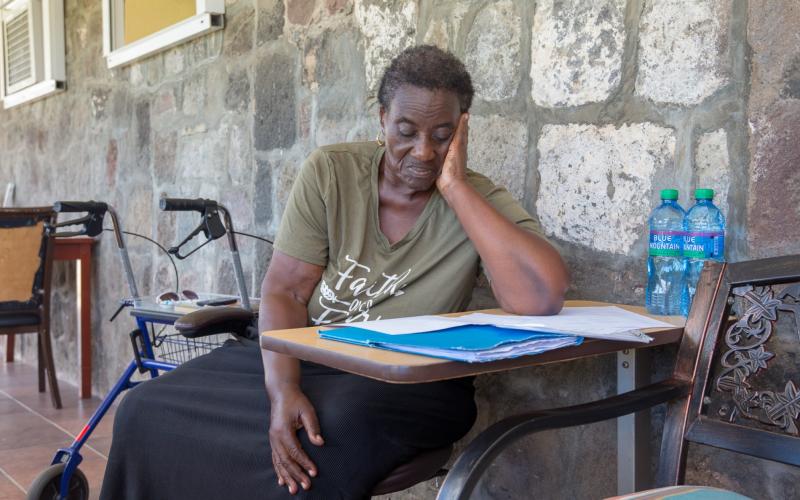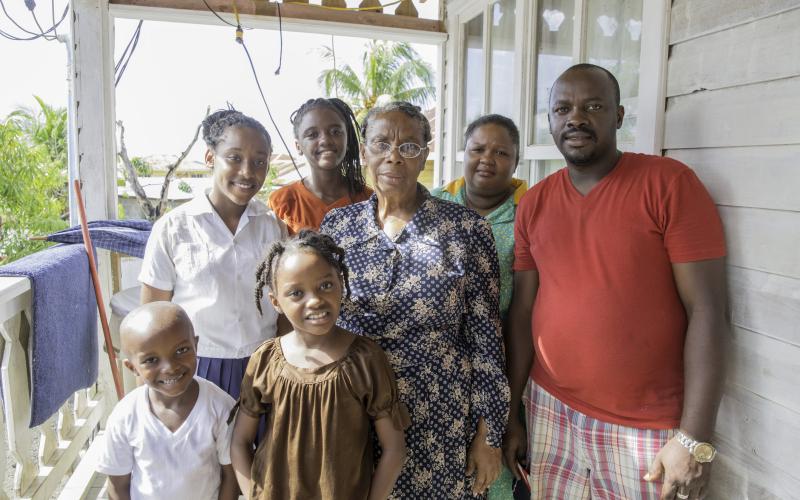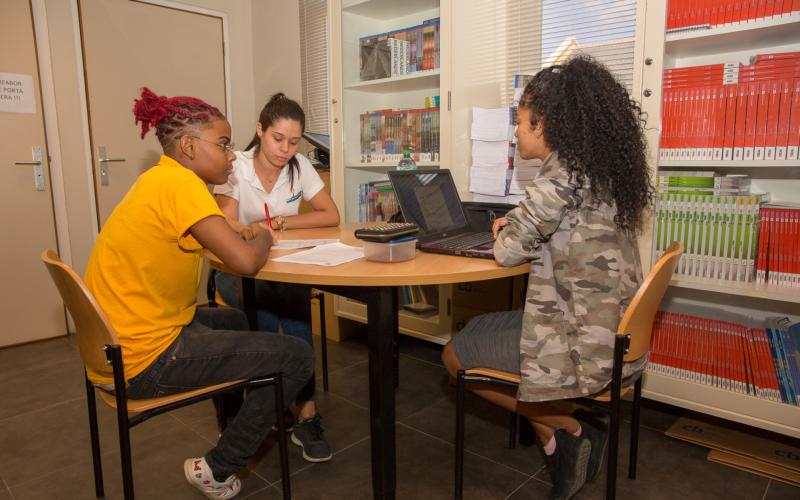
Elderly who live on or below the poverty threshold in the Caribbean Netherlands face several problems. They have too little money to cover their basic needs, there are too few (care) facilities and they don’t know which arrangements they are eligible for.
That is the conclusion of National Ombudsman Reinier van Zutphen, who is also the Ombudsman for Bonaire, Statia and Saba, in his report Focus on the elderly in the Caribbean Netherlands, a report about poverty related problems the elderly in the Caribbean Netherlands face. Van Zutphen: ‘It is not uncommon for the elderly in the Caribbean Netherlands to live in inhumane conditions. The implementation of a policy that secures their livelihood must really be given priority.’
Bitter poverty
The Ombudsman has found that elderly who only receive an AOV pension (similar to the Dutch AOW pension) are hardly able, or even unable, to make ends meet. Many of them live in bitter poverty. The costs of basic needs in the Caribbean Netherlands are often twice as high as they are in the European Netherlands, while the AOV pension is roughly equal to the Dutch AOW. The costs of housing are high and groceries are expensive. Many elderly cannot afford to buy fresh fruits and vegetables. And elderly who are entitled to special benefits, called bijzondere onderstand (similar to what is called bijzondere bijstand in the Netherlands), in many cases are unaware of that, due to a lack of poverty prevention. That causes them to end up below the poverty threshold even faster.
Insufficient facilities
In the Caribbean Netherlands, there are insufficient facilities for the elderly. There is no public transportation, for example, or it is very limited, causing the elderly to become isolated. Because of the lack of transportation, they also depend on the local shops near their houses. They can’t visit multiple stores to look for bargains, and their groceries end up being even more expensive. The elderly often depend on the day centers for meals, but those don’t have enough capacity. There is limited availability of domestic care services, and there are no specific rehabilitation centers.
Integrated approach is needed
Van Zutphen: ‘Despite all their problems, the elderly in the Caribbean Netherlands hardly complain about their situation, because they are too proud and mostly also too ashamed to do so. But their situation is not acceptable and has to be improved as soon as possible. All governments have to press ahead now, in all fields at the same time.’
According to the Ombudsman, an integrated approach with a strong coordination is needed to ensure the livelihood of the elderly in the Caribbean Netherlands. The measures announced by the Secretary of State for Social Affairs and Employment in her letter to Parliament of June 27th, in his view are not sufficiently specific. It is unclear to the Ombudsman which government will take which actions and when, and who will be supervising the process. Also, all indications are that the increase of the AOV pension announced in the letter to Parliament, is not sufficient.
Van Zutphen: ‘But even more important is the fact that money alone is not enough to help the elderly in the Caribbean Netherlands. They have an urgent need for improvement of the facilities. That is what the government needs to start working on now, both in the Caribbean Netherlands and the European Netherlands.’
‘Caribbean table’ is necessary
The Ombudsman therefore considers it necessary to set up a ‘Caribbean table’, in which all departments that have a task within the Caribbean Netherlands participate, under the coordination of the Ministry for the Interior and Kingdom Relations. ‘Government bodies are currently focusing too much on their own tasks, responsibilities and budgets,’ says Van Zutphen. ‘They are not sufficiently aware of the fact that their policies come together at vulnerable citizens in the Caribbean Netherlands.’ According to the Ombudsman, the government must look at the living situation on the islands from the point of view of that group of people. He therefore recommends to pro-actively involve elderly and caregivers in policymaking.
On September 11th on Bonaire, the National Ombudsman will discuss his report with representatives of the government bodies and social organizations. By doing so, he wants to initiate the dialog between the government and the caregivers, as a first step toward improvement of the facilities for the elderly in the Caribbean Netherlands.
Background
Since 2010, Bonaire, Saba and Statia are special municipalities of the Netherlands. Together, they are the Caribbean Netherlands. Since the establishment of the Caribbean Netherlands, the National Ombudsman has been investigating complaints about state government bodies on the islands. Since 2012, he also investigates complaints about the local government bodies, known as the Public Bodies (Openbare Lichamen). Several times a year, the National Ombudsman and/or his team visit the Caribbean Netherlands. They have consultation sessions and speak to the representatives of (public) institutions.
The past few years, during their visits, the Ombudsman and his team received many indications of (hidden) poverty in the Caribbean Netherlands. Poverty is an important issue to the National Ombudsman, and the situation of vulnerable elderly in the Caribbean Netherlands has not improved since 2010 – contrary to expectations. That is why the Ombudsman decided to investigate the poverty-related issues among the elderly in the Caribbean Netherlands.
This study is the first in a series of investigations into poverty in the Caribbean Netherlands, it will be followed by studies of poverty among single parents and among young adults in the Caribbean Netherlands. In late 2020, the Ombudsman expects to publish a vision on poverty in the Caribbean Netherlands.

